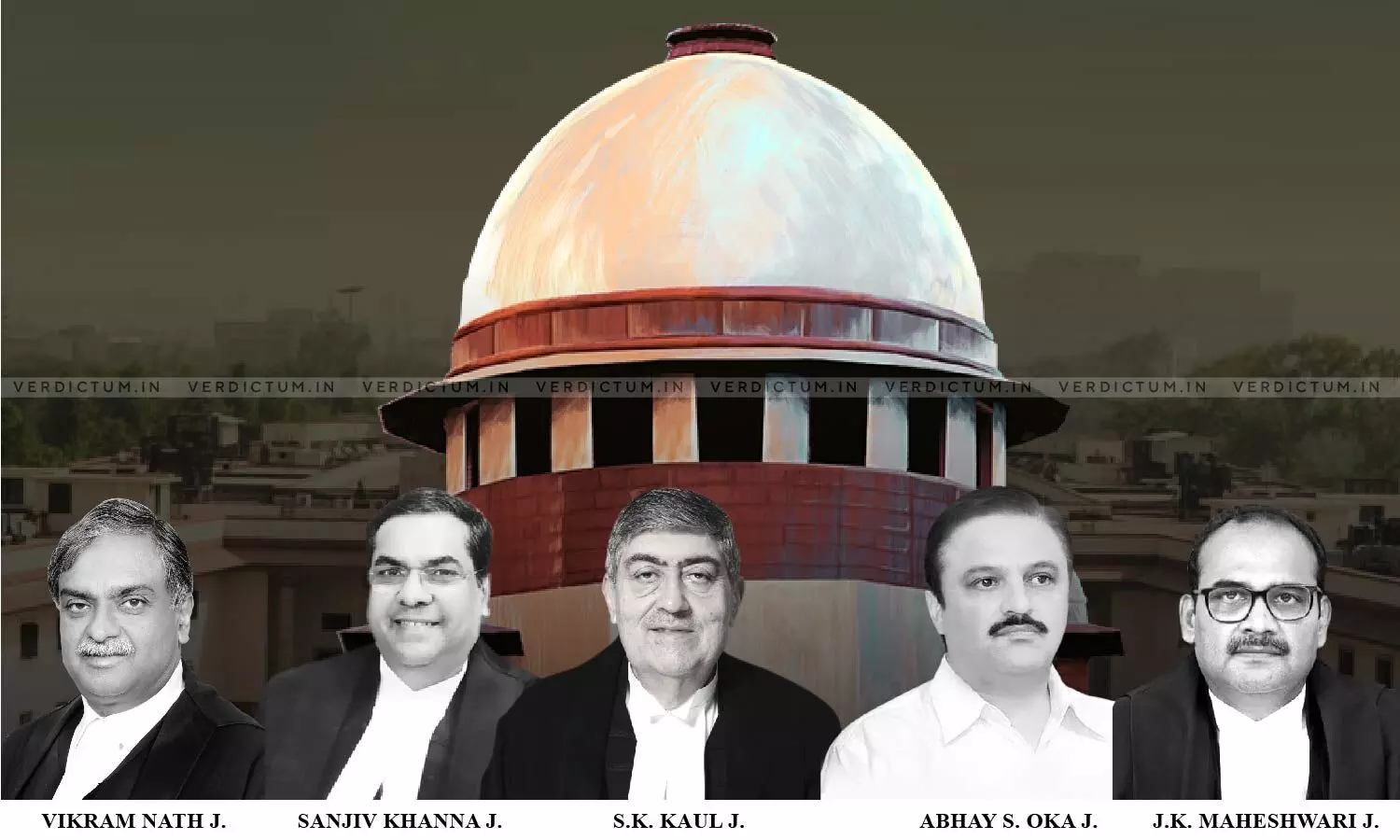
Breaking: Bhopal Gas Tragedy| Supreme Court Dismisses Centre's Curative Petition
 |
|The Supreme Court today dismissed the curative petition filed by the Centre seeking additional funds from Union Carbide Corporation's successor firms to grant higher compensation to the victims of the 1984 Bhopal gas tragedy.
The five-judge Constitution Bench led by Justice Sanjay Kishan Kaul and also comprising Justice Sanjiv Khanna, Justice Abhay S Oka, Justice Vikram Nath and Justice J K Maheshwari held that the curative petition cannot be entertained.
The Bench held that there is gross gross negligence on the part of the Union of India in not taking out an insurance policy.
Pronouncing the operative portion of the Judgment, the Bench said that it is the Union's own stand that the commissioner had adjudicated all claims as per the procedure established by law, where the possibility of appeal was provided. Further, it has been admitted in the proceeding culminating in the Court's order dated July 19 2004 that amount was found in surplus of the actual requirement, it said.
"Thus the claimants have been provided compensation that was more than what was reasonably awarded to them under the law. This reinforces the position that the settlement amount was sufficient to compensate the claimants", the Bench said.
The Bench also said that the union has filed the curative petition seeking to reopen the settlement after opposing attempts by private parties to do so.
"The responsibility was placed on the Union, being a welfare state, to make good the deficiency and to take out the relevant insurance policy. Surprisingly, we are informed that no such insurance policy was taken out. This gross negligence on the part of the union of India is in the breach of the directions made in the judgment. The Union cannot be negligent on this aspect and then seek a prayer from this Court to fix that responsibility on the UCC", Justice Kaul read from the Judgment.
"Either a settlement is valid or it has to be set aside in a case where it is vitiated by fraud. No such fraud has been pleaded by the Union," the Bench held.
The Bench held that it was known that medical facilities will have to be extended to rehabilitate people and there is bound to be environmental degradation and that this cannot be a ground to seek annulment of the compromise.
The Bench held that the Court is dissatisfied with the Union being unable to furnish any rationale for raking up this issue more than two decades after the incident. Even assuming that the figure of the affected persons turns out to be larger than contemplated earlier, an excess amount of funds remain available to satisfy such claims, it said.
"Providing closure to the lis is also a very important aspect. This is more so in the context of the scenario faced by the Indian judiciary where delay is almost inevitable", the Court said.
The judgment of the Supreme Court came on the curative plea filed by the Union Government back in 2010 seeking an additional amount Rs. 7,844 crore from Union Carbide Corporation's successor firms to extend higher compensation to the victims of the 1984 Bhopal gas tragedy that killed over 3,000 people and caused environmental damage.
The Constitution Bench had reserved its judgment in the matter on January 12.
The Union Government demanded another Rs. 7,844 crore from the UCC's successor firms over and above the settlement amount of USD 470 million (Rs 715 crore) it received from the American company as part of the settlement in 1989.
The UCC, now owned by Dow Chemicals, gave a compensation of Rs. USD 470 million (Rs. 715 crore) to the Union Government at the time of settlement in 1989 after the toxic methyl isocyanate gas leaked from the Union Carbide factory on the intervening night of December 2 and 3, 1984 resulting in death of 3,000 people and affecting more than 1.02 lakh.
The Centre approached the Supreme Court by filing a curative petition in December 2010 for enhanced compensation after a Bhopal court in June 2010 had sentenced seven executives of Union Carbide India Limited (UCIL) to two years imprisonment.